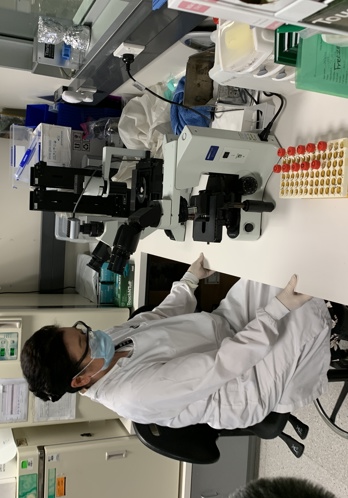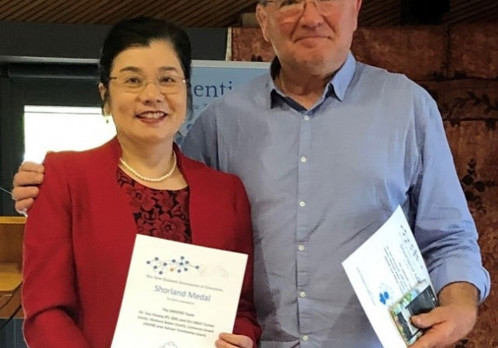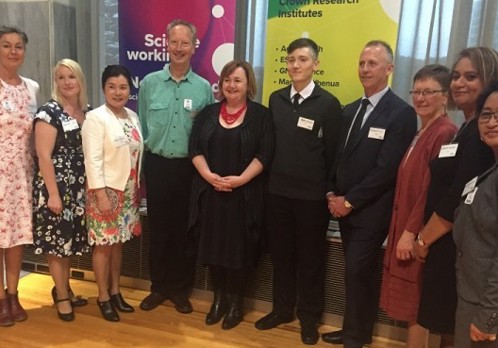World Immunisation Week, celebrated in the last week of April, raises awareness of the collective action needed to promote the use of vaccines to protect people of all ages against disease. We marked the occasion by highlighting WellKiwis, a multi-agency collaboration led by ESR, which is exploring the influenza virus, host immunity, and vaccines that work against it.
Influenza (also known as the flu), unlike a common cold, is a serious illness affecting hundreds and thousands of people globally and in New Zealand, particularly young children and the elderly. Flu symptoms come on suddenly and can include fever, chills, muscle aches, runny nose, cough, shortness of breath, and stomach upsets. It can keep you in bed for a week or more.
Flu is usually spread by coughing and sneezing and is most common during winter. The flu can make you very sick, even if you are usually fit and healthy. Immunisation provides the best protection against flu. However, because the flu virus changes often, the vaccine has to be tweaked each year to match the new strains of the disease.
WellKiwis
The WellKiwis study is an observational research project involving about 3,000 participants (infants, adults and households) in the Wellington region (hence the name, WellKiwis) following them for up to seven years. The WellKiwis study's overarching aim is to understand flu virus transmission and host immunity, to help develop durable and broadly protective universal influenza vaccines, as well as better prepare for future pandemics.
The study involves participants providing a baseline blood sample when they join the study, then completing weekly online surveys during the flu season to capture and assess symptoms, swabbing those who meet the criteria for virus testing, and also collection of post-flu vaccination, post-flu infection, and end of the flu season blood samples
Swabs are tested for flu and other respiratory viruses (COVID-19, respiratory syncytial virus, rhinovirus, enterovirus, parainfluenza virus types 1-3, adenovirus and human metapneumovirus).
Blood samples are tested for antibodies, other immune cells, and specific genes that associate with immune responses. The WellKiwis Household group also helps us to understand how the flu virus spreads from an infected person to others in a home setting through the monitoring of the household (every three days) once a member of the household tests positive for flu.
SHIVERS
Prior to the WellKiwis study, ESR also led the SHIVERS (Southern Hemisphere Influenza, Vaccine Effectiveness, Research and Surveillance) studies. These were a series of long-term research projects aimed at improving the understanding of influenza and other respiratory viruses, to help us better understand the flu, develop better vaccines, improve respiratory health and prevent future pandemics.
The first SHIVERS study was conducted during 2012-2017, covering 906,000 residents in the Auckland and Counties Manukau regions. This includes hospital-based surveillance for acute respiratory infections at Auckland City, Starship, Middlemore and Kidz First from 2012 to 2016. The New Zealand Ministry of Health has funded severe acute respiratory infection surveillance at these hospitals since 2016.
It also involved community-based surveillance for influenza-like illness in general practices from 2013 to 2016. The national Ministry of Health-funded and SHIVERS surveillance systems were merged for the 2016 season and continue to serve as the monitoring system for community flu and respiratory viruses.

Getting a flu vaccine helps reduce your risk of getting really sick or having to go to hospital.
Find out more about WellKiwis influenza research

Wellkiwis influenza study
10 December 2020

1,665 and climbing: WellKiwis team processes large number of swabs as winter illness season ramps-up
12 July 2023

Referrals surge for ESR WellKiwis influenza study following TVNZ 'Sunday' story
21 September 2021

Shorland Medal 2019- SHIVERS team award
24 October 2019


